In this article, Anant JAIN (ESSEC Business School, Grande Ecole Program – Master in Management, 2019-2022) talks about CleanTech.
Introduction
CleanTech, or clean technology, represents a burgeoning field dedicated to creating innovative solutions that minimize environmental impact, enhance energy efficiency, and support sustainable practices. This article examines the current worldwide landscape of CleanTech, highlights key innovations, and explores the potential for shaping a sustainable future.
Understanding CleanTech
CleanTech involves technologies that deliver superior performance while lowering costs compared to traditional methods, all while reducing environmental harm. CleanTech spans various sectors, including energy, water management, transportation, and agriculture, reflecting its extensive potential to address environmental concerns.
Key Innovations In CleanTech
Renewable Energy
Renewable energy sources such as solar, wind, and hydropower are pivotal to CleanTech advancements.
Example: Tesla has made significant strides with its solar roof and solar panels, which have become more efficient and affordable.
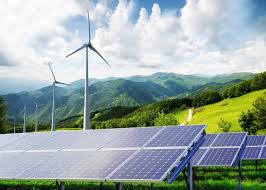
Energy Storage
Effective and efficient energy storage is crucial for balancing the variable output of renewable energy sources.
Example: QuantumScape focuses on developing solid-state batteries, which offer higher energy density and improved safety compared to conventional lithium-ion batteries. These advancements are crucial for electric vehicles and large-scale energy storage.
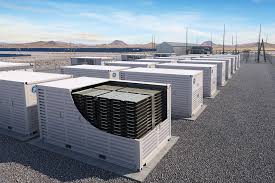
Electric Vehicles (EVs)
The shift from thermal engine vehicle towards electric vehicles is transforming traditional medium for transportation and daily travel.
Example: Rivian produces EVs like the R1T pickup truck and R1S SUV offering longer driving capabilities and advanced features showcasing the advancements and diversity in EV sector.
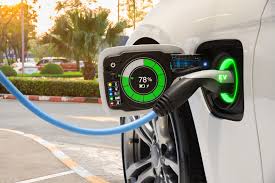
Smart Grids & Energy Management
Smart grids use digital technology to increase efficient distribution of electricity.
Example: Siemens has developed smart grid solutions that incorporate sensors and data analytics to optimize energy distribution and minimize outages, aiding in the integration of renewable energy sources.
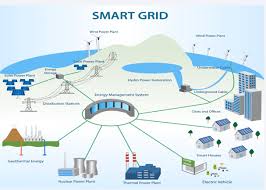
Water Purification and Conservation
Capable innovations in water management are essential and critical for addressing freshwater scarcity issues across the globe.
Example: Xylem provides advanced water purification technologies and smart irrigation systems, such as the Smart Irrigation Controller, which optimizes water use in agriculture based on real-time data.
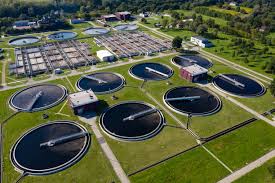
Waste Management and Recycling
New technologies are completely changing the waste management and recycling sector.
Example: TerraCycle specializes in recycling hard-to-process waste, offering innovative methods for recycling and upcycling materials that are typically not handled by conventional waste systems.
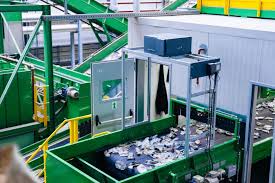
Challenges Ahead
Despite its promise, the CleanTech sector faces several challenges that must be addressed for its full potential to be realized:
High Upfront Costs
Many CleanTech innovations need prominent startup investment. Although these investments often lead to long-term savings and environmental benefits, it can be a barrier to widespread development.
Regulatory Hurdles
The regulatory environment can be complex and vary across regions, impacting the deployment of CleanTech technologies. Different countries may have distinct requirements and approval processes that affect market entry.
Technological Uncertainty
CleanTech encompasses a range of emerging technologies that are still evolving. Long-term performance, reliability, and cost-effectiveness of these technologies are not yet fully established.
Infrastructure Needs
Implementing CleanTech solutions often requires upgrading or developing new infrastructure. For instance, expanding the network of electric vehicle charging stations necessitates significant investment and coordination.
Market Competition
The CleanTech sector is competitive, with numerous companies vying for market share. Ongoing innovation & advancements in the technology are critical for companies to have a competitive edge.
Public Awareness And Acceptance
Overcoming resistance to new technologies and educating the public about their benefits can be challenging. Public awareness campaigns are essential for encouraging adoption and building trust in CleanTech solutions.
Implications For The Stock Market
The CleanTech sector has significant implications for the stock market:
Investment Opportunities
The CleanTech industry attracts investor due to its growth potential and impact. Companies involved in this area are often viewed as high-growth investments. The sector’s expansion is supported by regulatory incentives, technological advancements, and a global focus on sustainability.
Government Policies & Incentives
The government play a critical role in shaping the CleanTech market through their policies and incentives. Supportive regulations, subsidies, and tax credits can enhance the attractiveness of CleanTech investments. Investors should be aware of policy developments that may influence the market.
Market Volatility
CleanTech investments can experience market volatility due to regulatory changes, competition, and shifting consumer preferences. Investors should be ready & prepared for such fluctuations and should conduct in depth research before making investment decisions.
Sustainable Investing
The rise of Environmental, Social, and Governance (ESG) criteria has led to a focus on sustainable investing. CleanTech companies often align with ESG goals, attracting socially conscious investors. Investment funds and indices focused on sustainability offer exposure to the CleanTech sector.
Personal Investing In CleanTech
For individual investors interested in CleanTech, several strategies can be considered:
Direct Investment
Investing directly in CleanTech companies can provide exposure to innovative technologies and growth potential. Stocks of companies involved in solar energy, electric vehicles, or energy storage are popular options.
Exchange-Traded Funds (ETFs) And Mutual Funds
For a diversified investment approach, investors can choose CleanTech-focused ETFs and mutual funds. These funds pool investments in a variety of CleanTech companies, reducing individual risk and providing broad exposure to the sector.
Green Bonds
Investing in green bonds allows individuals to support CleanTech initiatives while earning fixed-income returns since they focus on financing environment friendly projects.
Research And Due Diligence
Conducting thorough research and due diligence is essential for any investment. It is important to evaluate a company’s financial health, technological innovations and roadmap, market potential, and management style to help make informed investment decisions. Staying updated on industry trends and technological advancements is also beneficial.
The Path Forward
The future of CleanTech holds great promise, driven by ongoing research and investment. Collaboration among governments, businesses, and research institutions is key to advancing CleanTech solutions. Supportive policies, financial incentives, and public awareness are crucial for fostering innovation and adoption.
As we confront environmental challenges, CleanTech represents a vital part of the solution. Utilising CleanTech technology and innovation can help us move towards a more sustainable and bright future. For investors, CleanTech offers opportunities to align financial goals with environmental impact, potentially achieving both financial returns and contributing to a greener planet.
In summary, CleanTech is essential to the global effort to create a sustainable world. Through continued innovation and collaborative efforts, we can realize the full potential of these technologies and build a cleaner, greener future. Understanding the financial implications and opportunities within the CleanTech sector can lead to rewarding and impactful investment decisions.
Related Posts On The SimTrade Blog
▶ Akshit GUPTA Green bonds
▶ Anant JAIN Green Investments
Useful Resources
Useful Articles
ETP Clean Energy Technology Guide
Business Examples
Tesla – Solar Roof and Solar Panels
QuantumScape – Solid-State Batteries
Xylem – Water Purification and Smart Irrigation
TerraCycle – Waste Management and Recycling
About The Author
The article was written in October 2024 by Anant JAIN (ESSEC Business School, Grande Ecole Program – Master in Management, 2019-2022).
▶ Read all articles by Anant JAIN.

